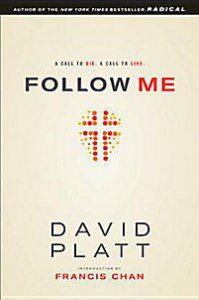 One of the things I loved most about doing talk radio centered around two things involving my guests. First, I gave them lots of space; I worked in a format where I could give them at least a half hour (25 minutes in radio land) and often an hour for someone addressing a heavyweight topic. Second, I loved the idea that I could have long conversations with people who, outside of radio, I’d never get close enough to sneeze at. That’s why one guy really threw me a curve in not coming on. One of the most incisive voices on what God was doing globally, he’d quit doing all interviews because of the attacks he suffered at the hands of Christians. His research reflected that the leadership of world Christianity not only was shifting to the Africans, Asians and Latinos of the Third World but that that this shift started two or three decades ago. Sharing this information brought Christians through the phone lines like swarms of hornets attacking and questioning his faith and loyalty to the United States.
One of the things I loved most about doing talk radio centered around two things involving my guests. First, I gave them lots of space; I worked in a format where I could give them at least a half hour (25 minutes in radio land) and often an hour for someone addressing a heavyweight topic. Second, I loved the idea that I could have long conversations with people who, outside of radio, I’d never get close enough to sneeze at. That’s why one guy really threw me a curve in not coming on. One of the most incisive voices on what God was doing globally, he’d quit doing all interviews because of the attacks he suffered at the hands of Christians. His research reflected that the leadership of world Christianity not only was shifting to the Africans, Asians and Latinos of the Third World but that that this shift started two or three decades ago. Sharing this information brought Christians through the phone lines like swarms of hornets attacking and questioning his faith and loyalty to the United States.
David Platt has a bug and he’s working hard to infect as many of us as he can. Spinning off his earlier titles (Radical and Radical Together), David continues to goad and provoke contemporary American Christianity in Follow Me to examine itself in light of Scripture (I would say “probe” or “examine” since these have a respectable academic ring to them and David owns the degrees. But he pushes harder than that.) And many young adults from college age up listen. If you read his books, David sounds one note that he works through different themes and variations; he adamantly pushes for biblical conversions (changed lives evidencing Jesus Christ indwelling through the Holy Spirit as opposed to “decisions”), a regenerate church membership (a community of the people just described becoming a living expression of the Body of Christ as opposed to a religious group who attends services as they’re available if at all) with a view to penetrating the world with the Gospel of Jesus Christ expressed in both words and actions.
He continues and intensifies his argument from earlier books that much of American Christianity stands more conformed to the American Dream (which is fading if not undergoing extreme revision) than to the Kingdom of God. Like my radio interview not-to-be, he sees muscles of Christ’s Kingdom flexing and growing strong in other places. The book abounds with his experiences in many Third World situations and these give teeth to his case. David cites a member of his church named Matthew who worked for many years in one of the most persecuted areas of the world. On the first day that people come to Christ in that place, they are told to make a list of every unbeliever they know (which is almost everyone). Then they circle the names of the ten people on the list least likely to kill them if they speak of Christ. The new believers then are encouraged to share Christ with these ten as soon as possible. While Westerners shake their head, secretly glad to be here, this has the ring of Book of Acts stuff. David builds a case to be seriously weighed. If Christianity as it’s currently expressed in the West (North America and Western Europe) could be transported back to the first century to supplant what we read in the New Testament, would the Christian faith even exist on the planet today?
In telling this story, David brings two strengths to his writing that engages the reader. First, as I mentioned before, come his own stories from different parts of the world. His has been no armchair crusade; it has the unmistakable smell of the first hand about it and therefore carries weight and credibility. He’s sensitive as to how much can be safely shared and in what contexts – no ego flaunting as to how “relevant” he is. He’s also vulnerable in an unassuming way bringing in personal details such as their adopting a child, the joys and struggles of it. And second, he uses a lot of Scripture; the footnote pages are stacked with it with very few quotes from outside books or other sources. If a writer strives to make a case to Christian people that challenges many beliefs wallpapering the faith of millions for decades, that writer better come with something Christians take seriously – like the Bible. And not just a verse here and there ripped out of context or personal favorites. David handles Scripture well, large quantities of it done in ways that don’t bog down the narrative in Bible quotes. The reader catches himself leafing back to the footnotes page (since the references aren’t given on the page of the verse) to find out just where that verse is. When the reader takes time to interrupt his reading to turn to the footnotes page out of insistent curiosity, the writer gets an “A” for style that feeds the message instead of warring against it.
David Platt is not the only voice sounding this note (Shane Claiborne and Relevant Magazine to name a few). This message not only is not new but it’s the note always sounded in times of revival and spiritual awakening or as Christianity passes from one generation to the next. One mistake would come in assuming that his book mainly addresses college students and other young adults. After all, they still have the major decisions ahead and life directions still haven’t been set. All true but it’s impossible to miss in the Bible that the vast majority of the calls of God came to people in established adulthood with settled life directions in place. One stirs settled old dogs at their peril. But an old dog who never stirs misses a lot of bones. “Follow me.” Almost two thousand years ago, it looked like this:
Wanted: twelve unstable men with little experience in foreign affairs to accompany rabbi on a three-year road trip. Destination: undisclosed. Must be willing to leave family for extended periods of time. No formal education needed. No salary, no offices, no supplies provided. No transportation offered. Extra clothing or money not permitted. Job description: fishing for people and unconditionally following the rabbi. Housing: hopefully. Failure: often. Persecution: almost certainly. Upon completion of the mission you will receive the same reward as Old Testament prophets received. Call 1-800-DIE-2DAY to schedule an interview. (“In the Company of Jesus” by Bill Donahue, InterVarsity Press, pp. 88-89)
David Platt says it still does. Hearing him out may hurt (read make us angry) and thinking about what he says will take work (read make us angry). I’ll bet he even risks radio interviews to get the message across. This will be a book that, if we read it and allow it to sound its voice — and we pass along to someone else — we will have caught the bug like David and want to infect as many people as we can.
Check out the Patheos Book Club for more conversation – and to read an excerpt – from Follow Me.
David Swartz pastors Bethel Baptist Church in Roseville, Michigan. He thinks that jazz is sacred music, that books are better company than most people, and that university towns rock. He blogs at geezeronthequad.com.













